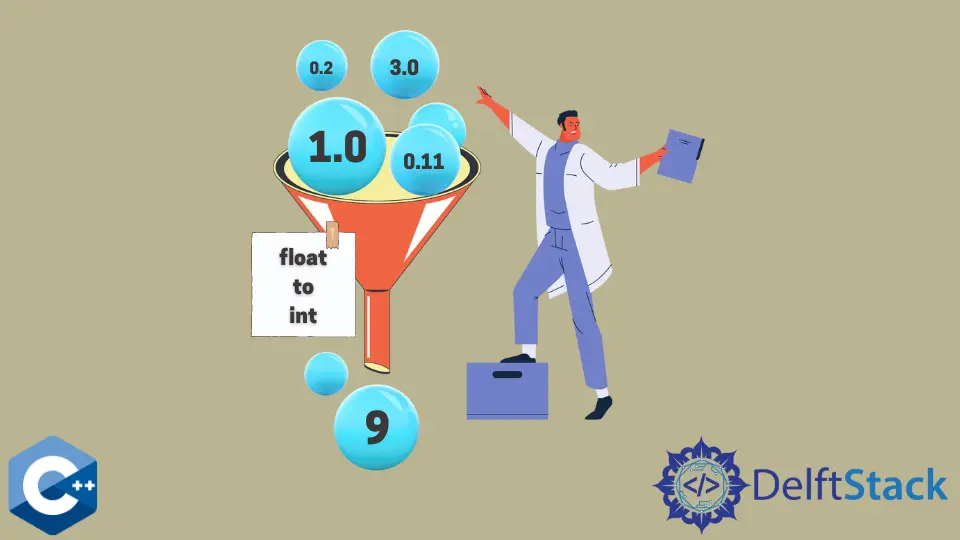如何在 C++ 中把浮点数转换为整数

本文将演示如何在 C++ 中把浮点型转换为整型的多种方法。
使用直接赋值将浮点数转换为整数
浮点数和整数值之间的转换可以使用赋值运算符来完成。在这种情况下,浮点型变量将被隐式转换为整型类型,值将被缩小到第二种类型,失去小数点后的所有数字。注意,我们使用 int 的向量来存储 float,然后将每个整数输出到控制台,以便更好的演示。
#include <iostream>
#include <string>
#include <vector>
using std::cout;
using std::endl;
using std::vector;
int main() {
vector<float> f_vec{12.123, 32.23, 534.333333339};
vector<int> i_vec;
i_vec.reserve(f_vec.size());
for (const auto &f : f_vec) {
i_vec.push_back(f);
}
for (const auto &i : i_vec) {
cout << i << "; ";
}
cout << endl;
return EXIT_SUCCESS;
}
输出:
12; 32; 534;
使用 C-style Cast 将浮点数转换为整数
另一种解决方案是用 (typename) 符号进行 C 风格的转码。这种方法在现代 C++ 中通常被认为是不安全的,但如果程序员正确使用它,代码就会按预期运行。注意千万不要将指针投向不完整的类,因为它可能导致未定义的行为。
#include <iostream>
#include <string>
#include <vector>
using std::cout;
using std::endl;
using std::vector;
int main() {
vector<float> f_vec{12.123, 32.23, 534.333333339};
vector<int> i_vec;
i_vec.reserve(f_vec.size());
for (const auto &f : f_vec) {
i_vec.push_back(int(f));
}
for (const auto &i : i_vec) {
cout << i << "; ";
}
cout << endl;
return EXIT_SUCCESS;
}
输出:
12; 32; 534;
使用 static_cast 将浮点数转换为整数
根据现代 C++ 的建议,应该利用命名转换法将浮点数值转换为整数。static_cast 转换类型而不检查值;因此程序员有责任确保正确性。需要注意的是,命名转换和它们的行为相当复杂,需要通过一个概述来掌握,所以这里是 static_cast 的完整手册,列出了所有的边缘情况和特性。
#include <iostream>
#include <string>
#include <vector>
using std::cout;
using std::endl;
using std::vector;
int main() {
vector<float> f_vec{12.123, 32.23, 534.333333339};
vector<int> i_vec;
i_vec.reserve(f_vec.size());
for (const auto &f : f_vec) {
i_vec.push_back(static_cast<int>(f));
}
for (const auto &i : i_vec) {
cout << i << "; ";
}
cout << endl;
return EXIT_SUCCESS;
}
输出:
12; 32; 534;
Founder of DelftStack.com. Jinku has worked in the robotics and automotive industries for over 8 years. He sharpened his coding skills when he needed to do the automatic testing, data collection from remote servers and report creation from the endurance test. He is from an electrical/electronics engineering background but has expanded his interest to embedded electronics, embedded programming and front-/back-end programming.
LinkedIn